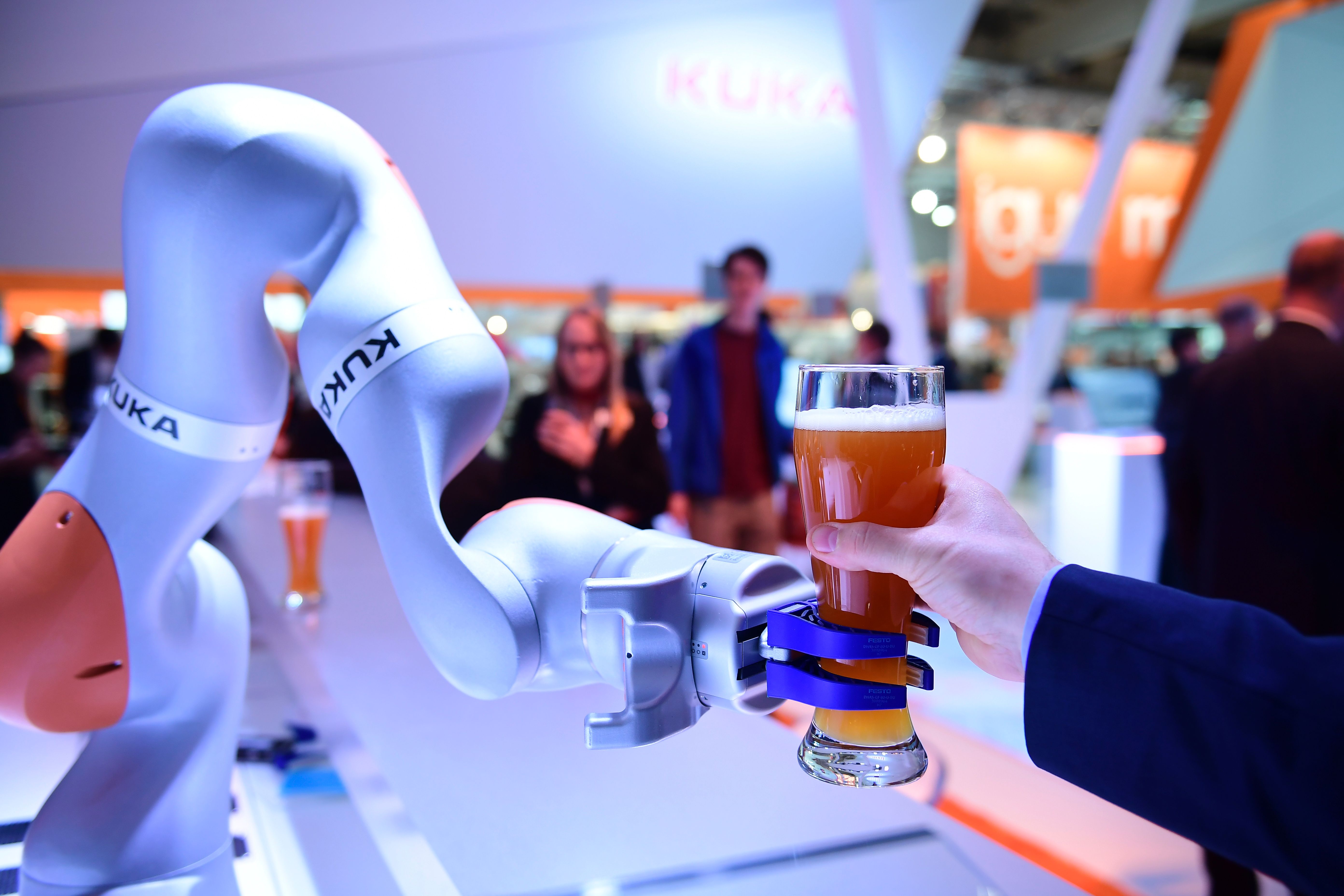Industrial-Robot Firm Kuka Looks to Automate the Home

One of the world’s most successful makers of industrial robots plans to turn its hand to creating automatons that help humans.
Last summer, the German robotics firm Kuka—whose bright-orange robots already grace many a factory floor—was acquired by the Chinese household appliance company Midea Group for $5 billion. The purchase reflects a long-standing desire in China to embrace automation. At the time, our own Will Knight explained that the purchase was probably a bid by Midea to roboticize the production of its domestic hardware, but he also speculated that Kuka might help the Chinese firm build domestic robots, too.
Now, the latter prediction is being borne out. In an interview with the Financial Times (paywall), Kuka’s CEO explained that “Midea is not doing any robotics or automation, so Kuka is automation for Midea. And they are very well connected to the consumer industry. So together we want to do consumer robotics.”
It’s not yet clear what form these robots will take. But given Kuka’s heritage, they’re unlikely to be the kind of small companion robots that do little more than talk and wheel around the home. Instead, we might expect the German firm to have ambitions for robots that can load and unload dishwashers, fix you a drink or plateful of food, or help elderly people out of bed. These are complex tasks for machines, but they are gradually becoming more plausible for robots to undertake.
It’s likely to be helpers like this—and not the chirpy, chatting types—that encourage widespread consumer adoption of robots. Earlier this year, market research firm Research and Markets estimated that the personal robotics industry could be worth as much as $34 billion by 2022, growing almost 40 percent per year until then. It argued that robots used for cleaning and elderly care would be the main drivers of that growth.
We shouldn’t expect Kuka’s new machines to be humanoid, then. Indeed, the Financial Times also explains that the firm is “reimagining whether such assistants need to have two arms and a face, or whether they could move and function in some other way.”
(Read more: Financial Times, “Chinese Bid for Kuka Shows How Serious It Is About Robots,” “China Is Building a Robot Army of Model Workers,” “Audi Drives Innovation on the Shop Floor”)
Keep Reading
Most Popular
Large language models can do jaw-dropping things. But nobody knows exactly why.
And that's a problem. Figuring it out is one of the biggest scientific puzzles of our time and a crucial step towards controlling more powerful future models.
How scientists traced a mysterious covid case back to six toilets
When wastewater surveillance turns into a hunt for a single infected individual, the ethics get tricky.
The problem with plug-in hybrids? Their drivers.
Plug-in hybrids are often sold as a transition to EVs, but new data from Europe shows we’re still underestimating the emissions they produce.
Stay connected
Get the latest updates from
MIT Technology Review
Discover special offers, top stories, upcoming events, and more.